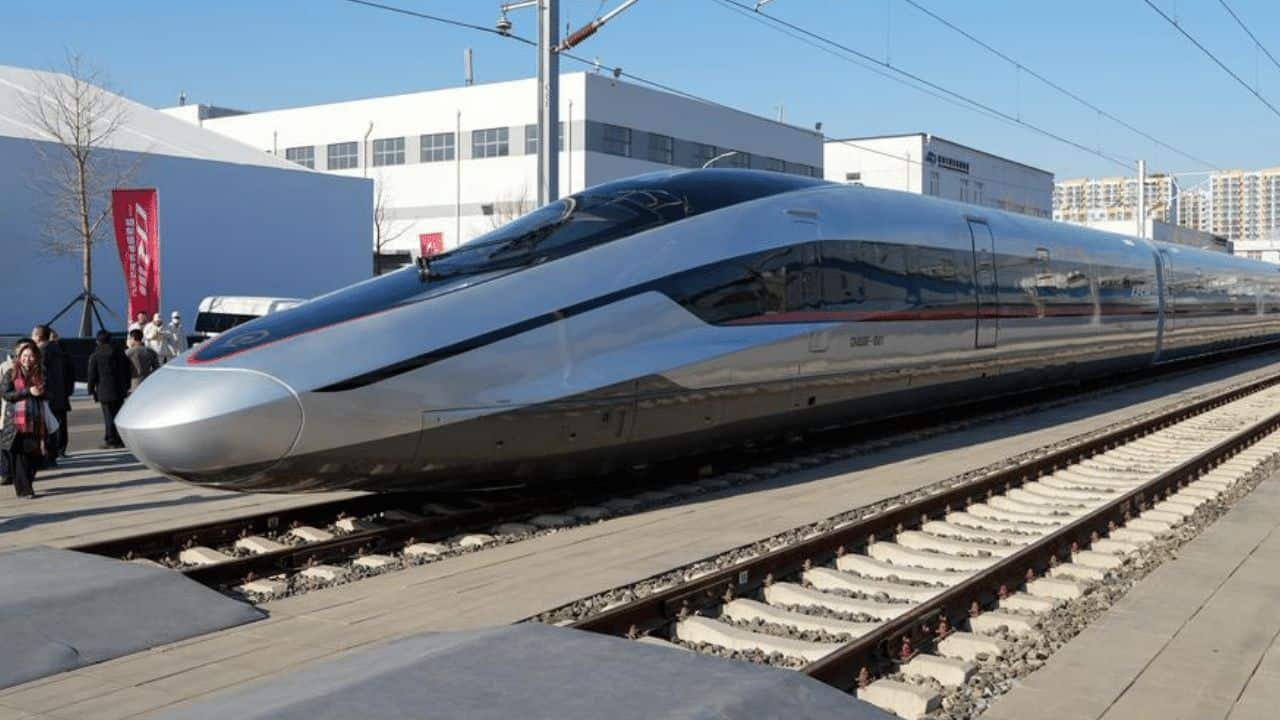
'450km in 1hr': China unveils world's fastest high-speed train prototype
What's the story
China has unveiled a prototype of its next-generation high-speed train, the CR450, which will become the world's fastest.
China's Ministry of Transport said that the CR450 has achieved a test speed of 450km/h and an operational speed of 400km/h.
The country already boasts some of the world's fastest commercial high-speed trains. The Shanghai maglev, which connects Shanghai's Pudong International Airport with downtown Shanghai, has a top speed of 430kmh, making it the world's fastest commercial train service.
Technical excellence
CR450's development and performance
The CR450 was developed by CRRC Changchun Railway Vehicles and CRRC Sifang Co., Ltd. It has undergone over 3,000 simulations and more than 2,000 platform tests to meet commercial operation standards.
The prototype has been lauded by its developers for its operational speed, energy efficiency, noise control, and braking performance.
Further line tests and refinements are planned to ensure compliance with all necessary standards for commercial use, the China State Railway Group said.
Advanced features
CR450 prototype features and future plans
The CR450 prototype consists of two models- the CR450AF and the CR450BF, both having an eight-car formation with four powered and four non-powered carriages.
The trains are fitted with advanced emergency braking systems and over 4,000 sensors for real-time monitoring of key systems.
Before they go commercial, China Railway will conduct a series of line tests for these prototypes to optimize technical indicators.
Network expansion
China's high-speed rail network and CR450's impact
China's high-speed rail network, which covers more than 160,000 kilometers, including 46,000km of high-speed rail lines, is vital for connecting major cities with rural areas.
Beijing has long sought to establish a pan-Asian railway network that would connect Kunming to Singapore via Laos, Thailand, and Malaysia, with extensions into Vietnam and Cambodia.
By 2035, the country plans to extend its railway network to 200,000km, with 70,000km of high-speed lines.